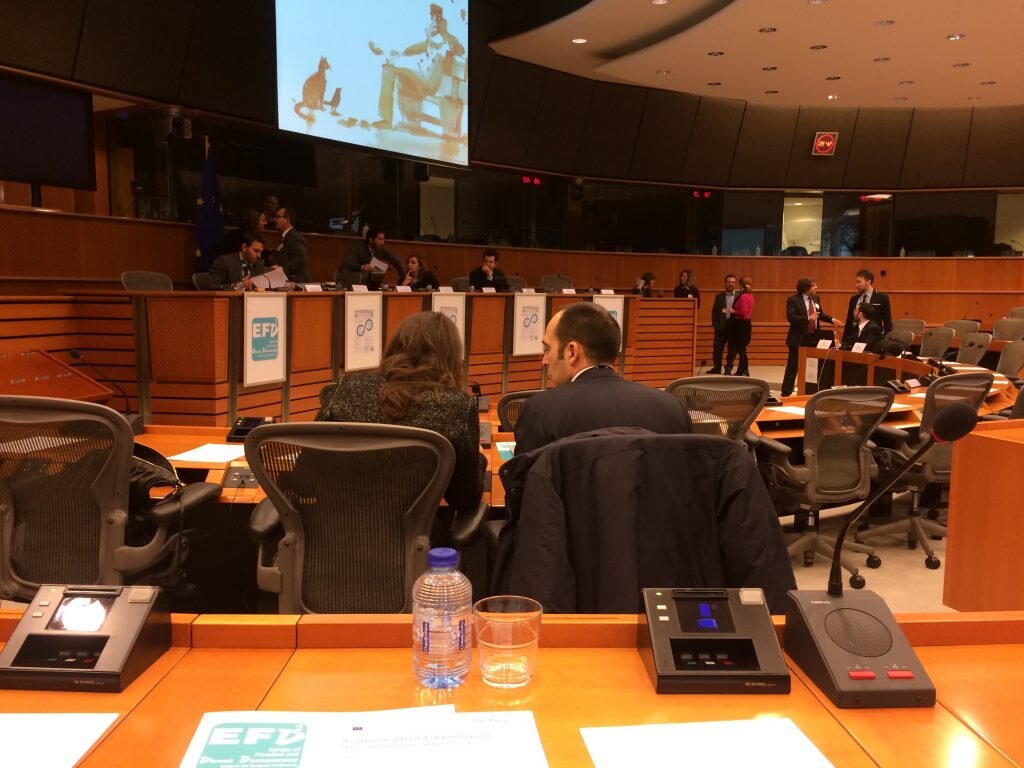How to get an internship in Brussels (Part 1/3)
I spent almost a year working in Brussels back in 2015. I thought I’d share my experience from getting into public affairs in the ‘European capital’. However, as the time flies, realities I’ll be sharing might slightly change (but I guess not so much).Background:My move to Brussels was quite natural. I was involved in political marketing in my home country, working in parliament, ministry, on many election campaigns, and with politicians individually. After 5 years, I started to get bored of Slovakia and it’s general climate. I was considering to exit this ‘industry’ entirely but before that, I wanted to experience international politics - Brussels was the ultimate place to go! After all, what if I could really enjoy it and continue my career abroad?Tip: Explore the opportunities and growth within your field. Ask yourself a question: What do I enjoy doing? How I want my life to look like in several years? + don’t limit yourself geographically.
Timing ⏱
I quickly realized I wasn’t able to find a job or internship that will accept me without a Bachelor degree. I just had to wait until I was finished with my Bc. to be eligible in order to apply.Tip: I’d suggest you do a lot of research and manage the timing beforehand. The selection process takes longer (everything in Bxl takes longer) than in the commercial sphere due to a range of procedures. Try looking for opportunities at least a year before you’d like to come in order to get a picture and meet the deadlines.
Erasmus 🌐
Squeeze the sh*t out of the Erasmus scheme! Apart from traveling to study at an EU university ( the selection depends on what partnerships your alma mater got secured for a particular year), there’s Erasmus + scheme that can support you while you’re taking the internship abroad. Another one can be Erasmus for young entrepreneurs.Tip: Investigate the opportunities both online and at your university. Internship scheme can be handled by a third-party organization.Anyway, this route requires a lot of bureaucracy so prepare to be patient.
Money 💸
This part needs a bit of a context so bear with me. :)The industry of internships is indeed broken. The amount of unpaid opportunities is humongous and letting people work for free is a common practice.Partially, the perception of an internship is that it’s part of the curriculum while you’re enrolled on university = part of your studies.On the other hand, the demand is so huge and opportunities are constantly deprived to meet the numbers of young applicants. Back in 2015, while I was on a search, the wide-spread rumors proclaimed that you get app 800-1000 CVs for 1 internship placement.I heard the number after I got accepted and if I knew it beforehand, I might've not continued. In fact, that’s probably the reason I was able to send ca 120 different applications. I clearly remember having a conversation with a young professional telling me ’you’ve sent 60 applications? That’s nothing!’. (She sent app 320 to get the one she truly enjoyed doing...)True. It’s not about you not being as good or enough - it’s statistics.Tip: With this in mind, be prepared and have an amount of money you can operate within your first months. It’s unclear when the grant might arrive and you get paid only after the first month (and a half) - depends on the organization. If you don’t have parents that can support you, spare some money before you travel.Either way, I’d strongly suggest you’ll take only the paid ones. Especially if it’s not your very first experience working. Deep down, at the end of the day, it’s about your inner motivation and fulfillment. It’s great to work on a cause you love and do the work you actually enjoy doing but at the same time - there are bills to pay and life to live!
Where to search for internships 💼
This part hugely depends on your professional preference and orientation. If you already know what part of public policy/affairs and causes you’re interested in, you’ll search for opportunities through a filter. If not, it’s always a good idea to start with the institution ones.You can choose from:altogether 12 institutions - find more details (and a spare weekend)
… continue to search for
and
Consultancies such
Almost every creative/media/advertising agency has a ‘public policy’ department. Try to approach them.Portals with EU job offers:
Tip: Even if there’s no current opening, definitely go for unsolicited applications (except institutions). If you’re specialized and know exactly what you’d like to do and what value you can bring to an organization, sell yourself!
Language
While English is essential, every other European language is definitely a plus! In my case, Slovak is not competitive at all. On the other hand, if you speak French, German, Italian or Spanish - this can be a great advantage!Tip: If you’re looking for a job in commercial space, speaking Dutch or French is often a baseline requirement. English-only opportunities are scarce. However, with English only, you should get along at least within
.
COMING UP NEXT:- interview with a fellow public affair professional in Brussels- practical tips on where to live, CVs, Brussels life, networking and more!Are you considering moving to Brussels? Is there anything that caught your attention or would you like to ask something else?Feel free to leave a comment - I'm happy to help and answer your questions. :)




